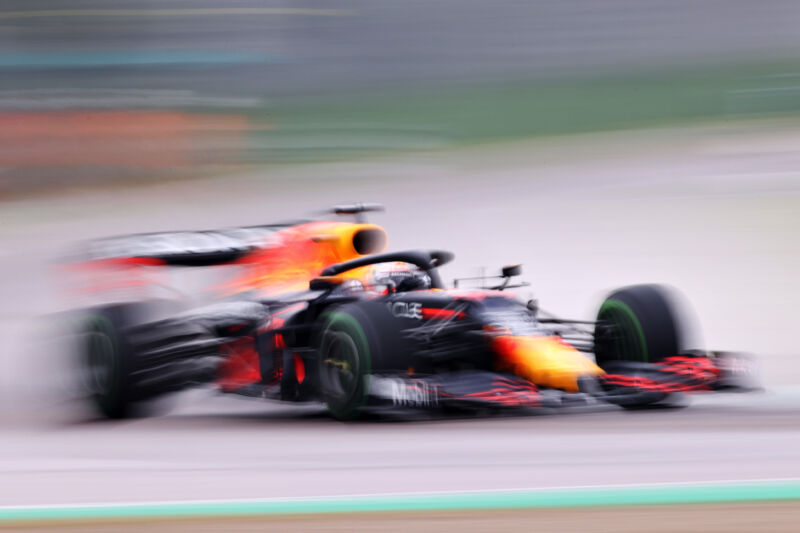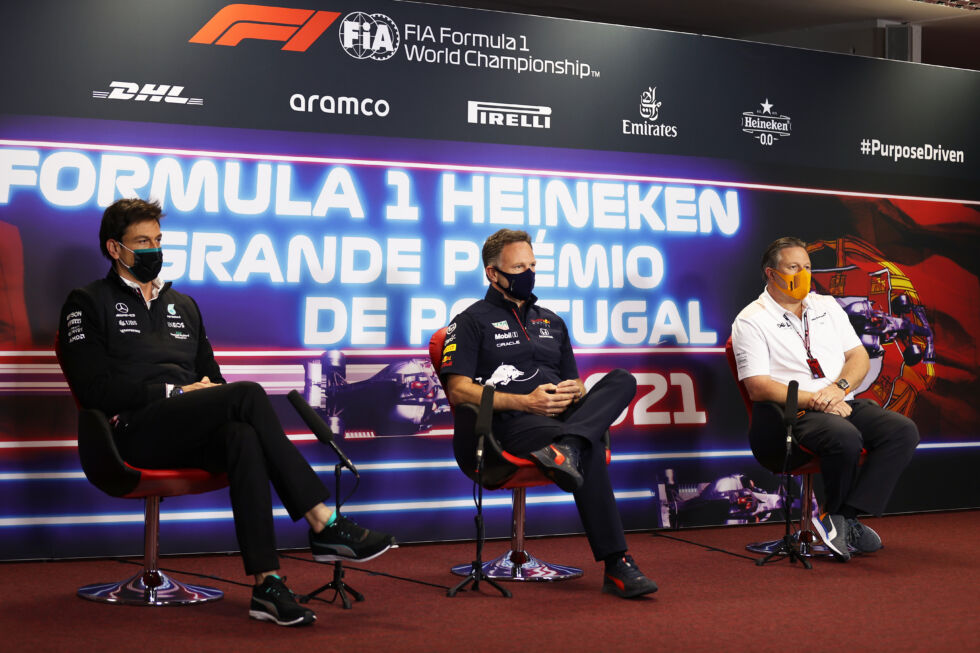
Even though we’re only two races in, this year’s Formula 1 season is already shaping up to be the most competitive in years. Thanks to the resurgent Red Bull Racing, Mercedes-AMG has a real fight on its hands for the first time since the introduction of hybrid powertrains in 2014.
Red Bull is in the final year of a partnership with Honda, and the Japanese OEM has pulled out all the stops in an effort to leave the sport with a little glory. Starting next year, Red Bull will take over the engine program from Honda, developing its own engines à la Mercedes-AMG, Ferrari, and Alpine. But could we see the energy-drink team partner with Porsche?
Rumors that Volkswagen Group is going to enter F1, either through its Porsche or Audi brands, are almost ever-present in the sport. Both Porsche and Audi scaled back their factory racing efforts as a result of dieselgate and then the pandemic, although both companies are planning to return to endurance racing at Le Mans and here in the US by 2023.
Representatives from VW Group have participated in discussions over future F1 engine rules, even though none of the company’s brands are involved in the sport. In late March, Audi flatly denied plans to enter F1, on the grounds of cost, but Porsche’s CEO was more cautiously optimistic, telling Car that participation was possible but that “the regulations need to change so that Porsche can broadly identify with the new environment-friendly priorities.”
Red Bull has said in the past that “nothing is fixed.” But the rumor mill will step up a notch after comments made in a press conference on Friday at this weekend’s Portuguese Grand Prix. This time, it was the Mercedes team boss, Toto Wolff, who threw some fuel on the fire.

“I think the right strategic steps have been, as far as I can see, set in motion from Red Bull,” Wolff said. “I think they are going dual-track with their own power unit and maybe with a new OEM joining in, and that’s certainly intelligent, and the arrangement that has been found with Honda in carrying over the IP is also clever. And it’s clear that they’re going to hire English engineers because it’s [the engine program] in the United Kingdom and there are not a lot of companies that can probably provide those engineers. So absolutely understood what the strategy is.”
Later in the press conference, Red Bull’s team principal, Christian Horner, was asked whether the team’s setup gave it unique flexibility with regard to bringing in an OEM as an engine partner.
Red Bull could keep everything in-house and badge the engine as a Red Bull, or it could partner with an OEM that simply adds its badge (and budget) to the engine program. Or an OEM might partly or completely involve itself in the engineering and development.
“It’s a big challenge, but it’s an exciting challenge, and it’s one that we fully embrace,” Horner said. “I think, other than Ferrari, it makes us the only team to produce chassis and engines in-house and have a fully integrated solution between both technical teams, and that’s particularly exciting and attractive. We are assembling an exceptionally talented group of people together. And you know, we’re only at the beginning of that journey.”
But Horner stayed tight-lipped about adding a new car company’s brand to the sport.
“In terms of what will the engine be badged as, at this point in time, [it] is clearly focused to be a Red Bull engine,” Horner said. “That is a commitment and that is a design group that we’re bringing together to focus on the new regulations. We have effectively a soft landing thanks to the IP usage that we have a principle agreement with Honda, so it’s exciting times. And I think it puts Red Bull in a truly unique situation to have everything housed on one campus under one roof and to really make use of those synergies. And particularly in a cost-capped world with cost caps potentially coming into powertrains as well, it makes it achievable for companies such as our own.”
https://arstechnica.com/?p=1761612

